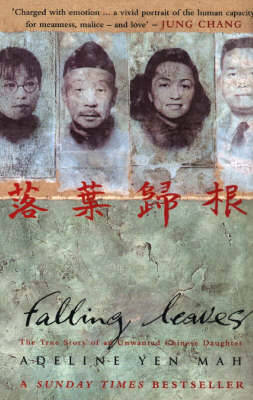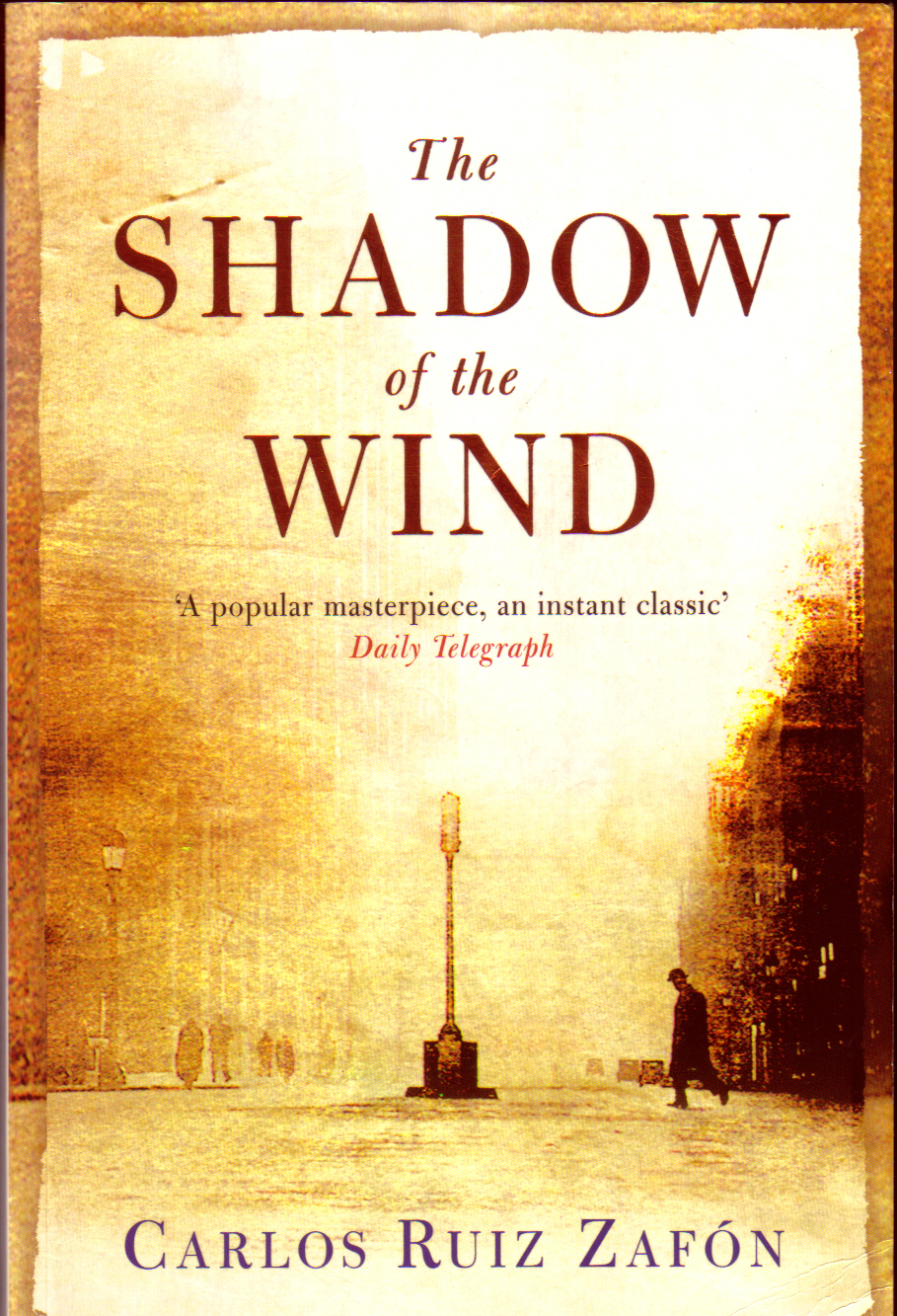--The blurb--
"Thought to bring bad luck because her mother died giving birth to her,
Adeline Yen Mah was discriminated against by her family all her life. Falling Leaves is
both the[...]story of how she survived that rejection and [a] saga of a Chinese family, from the time of the foreign
concessions to the rise of Communist China and the commercial boom of
Hong Kong."
adapted from Amazon.co.uk
--The review--
My family stretches all around the world, from London to Dublin and from Paris to Shanghai. Since reading Paul French's Midnight in Peking, visiting Thailand in 2005, hearing about my parents' recent trip to China to see my delightful 11-month-old half-Chinese half-English cousin, and beginning to plan my own trip to Japan in 2014, my own interest in all things Asiatic has increased. So when one of my students said that she had purchased the adult version of Adeline Yen Mah's memoir Chinese Cinderella (which we are currently studying) and offered to lend it to me, I gratefully accepted.
Chinese Cinderella is naturally a shorter book and focuses on Adeline's childhood, going from her birth to her departure for university. With more focus on specific childhood incidents, it is geared more towards children's sense of humour and pathos. As befits its target audience, Falling Leaves diverts from these focal points, giving a broader overview of China's history throughout Adeline's life and going beyond the scope of Chinese Cinderella, passing through the writer's adult life right up to 1990.
Naturally there is some repetition of stories, so those who have read Chinese Cinderella may find aspects of Falling Leaves a little tiresome. However, these stories are glossed over and are interspersed with new information, so they are not greatly to Falling Leaves' detriment. Newcomers to the events of the Cultural Revolution and the Tiananmen Massacres will be left with jaws dropped and minds opened, as Yen Mah incites the reader to want to know more.
Equally shattering are the attitudes and behavioural patterns of the majority of the writer's family members. As these patterns and attitudes were ongoing throughout Yen Mah's life, it is difficult at times to understand why she continued to be so generous towards them emotionally and financially when she would have been better to cut all ties with them, especially when she does prove herself able to cut ties with destructive forces at other points in Falling Leaves. However, at the same time, it is easy to see how each of us is all of our ages at once, and how inside Adeline is still the little girl desperately seeking the approval of Joseph, Jeanne, and her siblings. In this way, her treatment to the last by them is simultaneously predictable and unfair.
Comforting elements in this story include the power of hope and imagination in the face of adversity, and the notion that our real family can at times be the people we choose for ourselves. Equally inspiring is the encouragement that it gives to us all to face up to our past - whether our personal past or that of our country - and use it to create a better tomorrow. Yen Mah remained dignified, poetic and concise throughout, without losing lucidity or becoming patronising. Anyone who has ever felt unwanted by their family or simply been interested in Asian history should read Falling Leaves - and further to this, you'll find me ordering a copy of A Bitter Revolution online, so that after beginning to understand Adeline's struggle, I can perhaps begin to comprehend the struggle of China itself.
other works by Adeline Yen Mah
Chinese Cinderella (1999)
Watching The Tree (2000)
A Thousand Pieces of Gold (2002)
Chinese Cinderella and the Secret Dragon Society (2003)
China, Land of Dragons and Emperors (2008)
Chinese Cinderella: The Mystery of the Song Dynasty Painting (2009)
First three Chapters....
16 years ago










